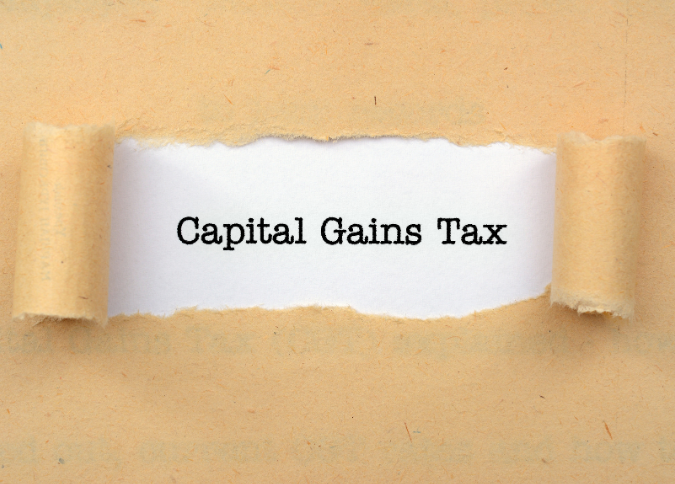New Capital Gains Rules Coming into Force in January 2026 – Cryptocurrency to be Taxed
- TBA

- Aug 22, 2025
- 4 min read
In recent years, cryptocurrency has moved from a niche investment into the mainstream.
From Bitcoin and Ethereum to Dogecoin and beyond, more and more people are making profits. But did you know these gains have long been part of the Capital Gains Tax system and are firmly within the sights of HM Revenue & Customs (HMRC)?
HMRC has officially announced new rules – from 1 January 2026, tax reporting requirements for cryptoassets will tighten significantly, and tax evasion will face severe penalties.

Overview of the new rules
To close tax loopholes more effectively, the UK will introduce the Cryptoasset Reporting Framework (CARF), a new system expected to generate £315 million in additional revenue over the next five years.
From 1 January 2026, cryptocurrency exchanges and service providers will be required to collect and report to HMRC full personal details and transaction summaries of their users, to check whether individuals have declared their cryptocurrency gains accurately. This includes:
Full name
Residential address
Date of birth
Tax residence
National Insurance number
Summary of crypto transactions
Tougher tax enforcement
HMRC has stated that this data will be used directly to verify tax returns, with significantly increased scrutiny. The new rules clearly state:
Failure to provide complete and accurate information will incur fines of up to £300.
Crypto service providers that fail to submit user data, or submit inaccurate information, will face fines of up to £300 per user.
Cases may trigger tax investigations, with back taxes, interest and penalties to be recovered.
In addition, Chancellor Rachel Reeves has announced increased investment in technology and resources for the tax system, aiming to raise a further £1 billion over the coming years through anti-avoidance and anti-fraud measures.
Declaring crypto gains
So which tax applies to your crypto profits?
The Property – Digital Assets Act, introduced in September 2024, confirmed for the first time that cryptoassets and NFTs fall under the definition of ‘personal property’.
It clarified that income from digital assets – such as profits realised when selling or exchanging cryptocurrency – is subject to Capital Gains Tax (CGT) and must be reported on your Self-Assessment Tax Return.

1. Capital Gains Tax (CGT) in the UK
Capital Gains Tax is charged on the profit you make when you sell, dispose of, or transfer an asset. It applies to (but is not limited to):
Sale of shares, funds and bonds
Sale of property (excluding your main residence)
Sale of cryptoassets (Bitcoin, Ethereum, etc.)
Sale of precious metals, art and high-value collectibles
Gifting assets (other than to a spouse) or transferring them into a trust
From 6 April 2025 (the start of the 2025/26 tax year), the annual CGT exemption will be:
Individuals: £3,000
Trusts: £1,500
This means that if your total net capital gains in a tax year are below £3,000, no CGT is due, and you do not need to file a CGT return (unless in specific cases such as large-value gifts). Couples jointly holding assets can use a combined exemption of £6,000, but unused allowances cannot be carried forward.
Note: The CGT annual exemption has been cut sharply in recent years – from £6,000 in 2023/24 – as part of the government’s push to increase CGT revenues.
2. CGT Tax Rates
From 30 October 2024, CGT rates on property gains were aligned with those for other assets:
Basic rate taxpayers: 18% (where total taxable income plus gains remains within the basic rate band)
Higher and additional rate taxpayers: 24%
Example:If your annual income is £20,000 and you realise a £12,600 gain from selling crypto, after deducting the £3,000 allowance, your taxable gain is £9,600. Your total income plus gain is £29,600 – still within the basic rate band.
CGT due: £9,600 × 18% = £1,728

Some advice from TB Accountants
HMRC has made it clear – full information disclosure will be mandatory from 2026. If you have crypto gains, now is the time to:
Check your registered personal details on all platforms are accurate.
Organise your historic transaction records and prepare tax documentation.
File proactively and remain fully compliant.
Seek professional advice promptly if in doubt.
Our UK-based tax specialists can help you with CGT calculations and tax planning, assist with preparing and submitting your Self-Assessment return, advise on high-net-worth asset structuring, and support you in the event of an HMRC investigation.
Why TB Accountants?
Professional Assurance: Our team includes ACA members and ACCA-certified professionals, delivering services to the highest industry standards.
Responsive Service: We respond to your inquiries within 24 hours, ensuring efficient communication across time zones.
Multilingual Support: Services available in English, Mandarin, Cantonese, Japanese, French, German, Spanish, Italian, Turkish, and more.
Trusted by Clients Worldwide: Consistently praised by global clients for proactive, professional, and reliable accounting and tax support.

For individuals and businesses looking for UK taxation services, use our contact form to get in touch for more information.
Get in touch with us at info@tbagroup.uk or for a free one-to-one consultation.



